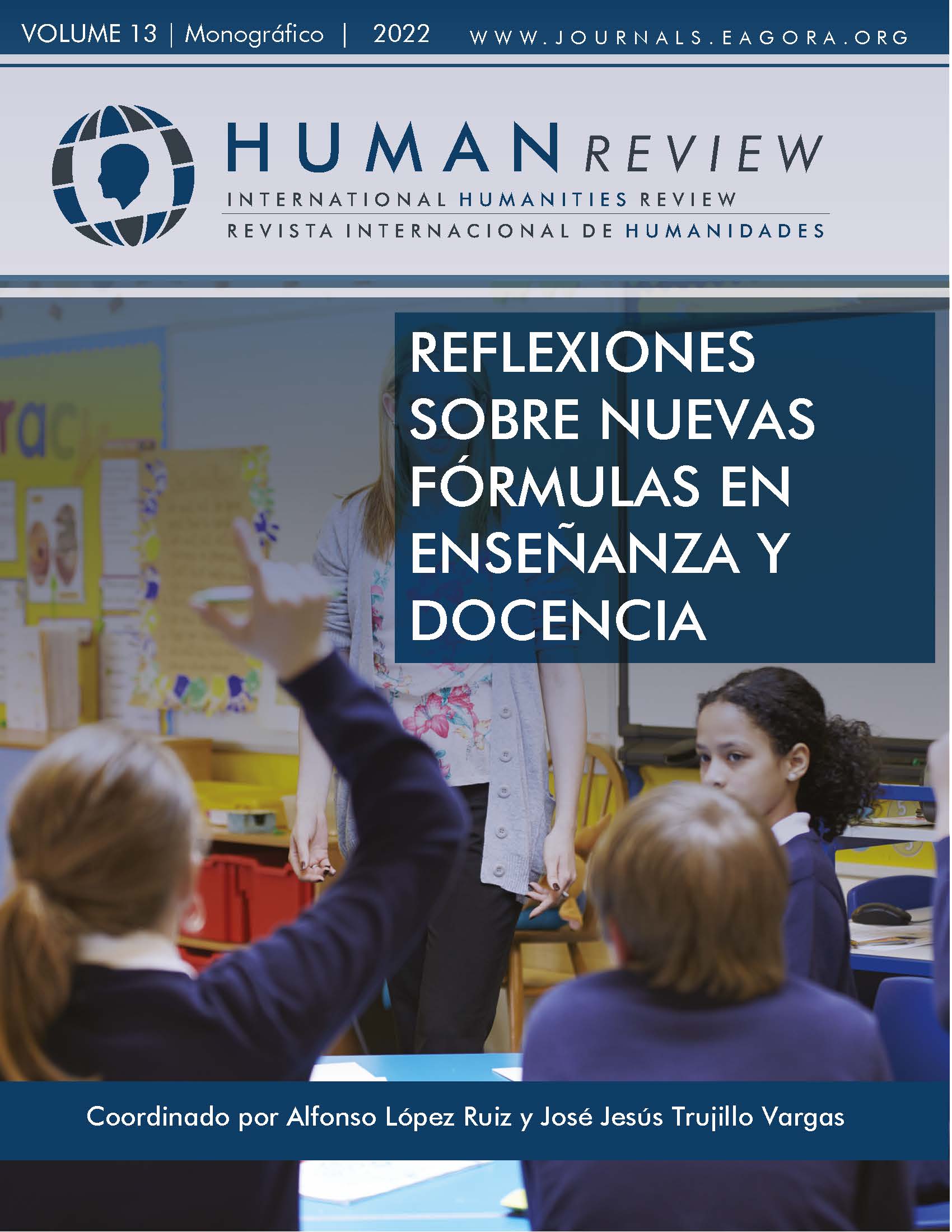Teaching writing and discursive genres in the digital age
Results of a Writing Project
DOI:
https://doi.org/10.37467/revhuman.v11.4081Keywords:
Writing project, Teaching innovation, Literacy, Expository text, Literature and territory, Academic writing, Digital environmentsAbstract
In this paper we present the results of a writing project based on Wikipedia article writing. This project was carried out with university students during the 21/22 academic year. The project consisted of the prototypical phases of this type of work: preparation for writing, writing and rewriting. During the project, an evaluation rubric was developed, which is the basis for the text analysis. This analysis has shown that students were able to acquire the necessary skills to achieve communicatively effective texts that meet the characteristics of the proposed genre.
References
AA. VV. (2008). Competencia Comunicativa. Diccionario de términos clave de ELE. https://cvc.cervantes.es/ensenanza/biblioteca_ele/diccio_ele/diccionario/competenciacomunicativa.htm
Álvarez-Angulo, T. (2011). Revisar y reescribir textos académicos en la formación del profesorado. Revista complutense de educación, 22(2), 269-295.https://doi.org/10.5209/rev_RCED.2011.v22.n2.38493
Bataller, A., Reyes-Torres, A. (2019). La pedagogía de las multiliteracidades y la experiencia estética como elementos claves en la enseñanza y el aprendizaje de lenguas. Por la consolidación de un nuevo paradigma. Revista Nebrija de lingüística aplicada a la enseñanza de lenguas, 13, (26), 13-30.https://doi.org/10.26378/rnlael1326306
Camps, A. (2003). Secuencias didácticas para aprender a escribir. Graó.
Cassany, D., Castellà, J. M. (2011). Aproximación a la literacidad crítica. Perspectiva, 28 (2), 353-374.http://hdl.handle.net/10230/21187
Colomer, T. (2009). Leer y escribir para dar forma a la experiencia. En VVAA: Decir, existir. I Congreso Internacional de Literatura para Niños: producción, edición y circulación (pp. 30-41). Editorial La Bohemia.
Pons Tovar, M. (2014). Cómo comunicarse con alguien que “no sabe hablar”. Expresión e interacción orales en los niveles iniciales de ELE. Campo abierto, 33 (2), 65-82.https://mascvuex.unex.es/revistas/index.php/campoabierto/article/view/1593
Colomer, T., Ribas, T., Utset, M. (1993). La escritura por proyectos: Tú eres el autor. Aula de innovación educativa, 14, 23-28. https://ddd.uab.cat/pub/artpub/1993/187511/aulinnedu_a1993n14aColomer.pdf
Farías, A. (2017). Alfabetización tecnológica, participación política y cuidado del medio ambiente en estudiantes universitarios de Humanidades. Sphera Publica, 1(17), 47-62.https://sphera.ucam.edu/index.php/sphera-01/article/view/300
Geertz, C. (2000). La interpretación de las culturas. Gedisa.
Kalantzis, M., Cope, B., Zapata, G. (2019).Las alfabetizaciones múltiples: Teoría y práctica. Octaedro.
Kern, R. (2000). Literacy and Language Teaching. Oxford University Press.
Lacorte, M., Reyes-Torres, A. (2021). Didáctica del Español como 2/L en el siglo XXI. Arco/Libros.
Downloads
Published
How to Cite
Issue
Section
License
Those authors who publish in this journal accept the following terms:
- Authors will keep the moral right of the work and they will transfer the commercial rights.
- After 1 year from publication, the work shall thereafter be open access online on our website, but will retain copyright.
- In the event that the authors wish to assign an Creative Commons (CC) license, they may request it by writing to publishing@eagora.org









